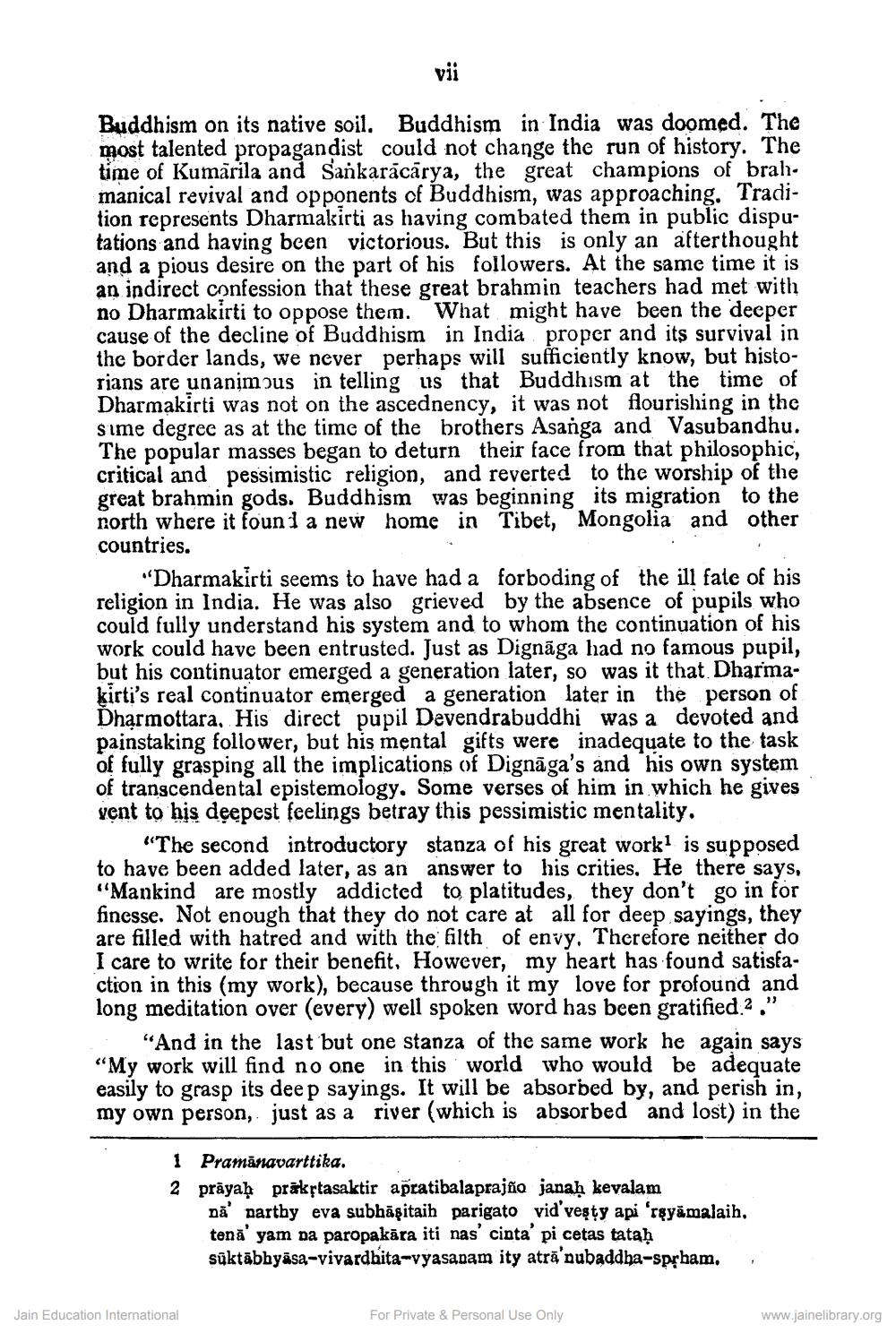________________
vii
Buddhism on its native soil. Buddhism in India was doomed. The most talented propagandist could not change the run of history. The time of Kumärila and Sankarācārya, the great champions of brahmanical revival and opponents of Buddhism, was approaching. Tradition represents Dharmakirti as having combated them in public disputations and having been victorious. But this is only an afterthought and a pious desire on the part of his followers. At the same time it is an indirect confession that these great brahmin teachers had met with no Dharmakirti to oppose them. What might have been the deeper cause of the decline of Buddhism in India proper and its survival in the border lands, we never perhaps will sufficiently know, but historians are unanimous in telling us that Buddhism at the time of Dharmakirti was not on the ascednency, it was not flourishing in the sime degree as at the time of the brothers Asanga and Vasubandhu. The popular masses began to deturn their face from that philosophic, critical and pessimistic religion, and reverted to the worship of the great brahmin gods. Buddhism was beginning its migration to the north where it found a new home in Tibet, Mongolia and other countries.
"Dharmakirti seems to have had a forboding of the ill fate of his religion in India. He was also grieved by the absence of pupils who could fully understand his system and to whom the continuation of his work could have been entrusted. Just as Dignāga had no famous pupil, but his continuator emerged a generation later, so was it that Dharmakirti's real continuator emerged a generation later in the person of Dharmottara, His direct pupil Devendrabuddhi was a devoted and painstaking follower, but his mental gifts were inadequate to the task of fully grasping all the implications of Dignāga's and his own system of transcendental epistemology, Some verses of him in which he gives vent to his deepest feelings betray this pessimistic mentality ,
"The second introductory stanza of his great worki is supposed to have been added later, as an answer to his crities. He there says, "Mankind are mostly addicted to platitudes, they don't go in for finesse. Not enough that they do not care at all for deep sayings, they are filled with hatred and with the filth of envy. Therefore neither do I care to write for their benefit. However, my heart has found satisfaction in this (my work), because through it my love for profound and long meditation over (every) well spoken word has been gratified.? ."
"And in the last but one stanza of the same work he again says "My work will find no one in this world who would be adequate easily to grasp its deep sayings. It will be absorbed by, and perish in, my own person, just as a river (which is absorbed and lost) in the
1 Pramānavarttika. 2 prāyaḥ präkptasaktir apratibalaprajño janaḥ keyalam
nă' nartby eva subhāşitaih parigato vid' vesty api 'rgyämalaih, tena' yam pa paropakāra iti nas'cinta' pi cetas tataḥ sūktābhyāsa-vivardhita-vyasadam ity atrā'nubaddha-sprham.
Jain Education International
For Private & Personal Use Only
www.jainelibrary.org




